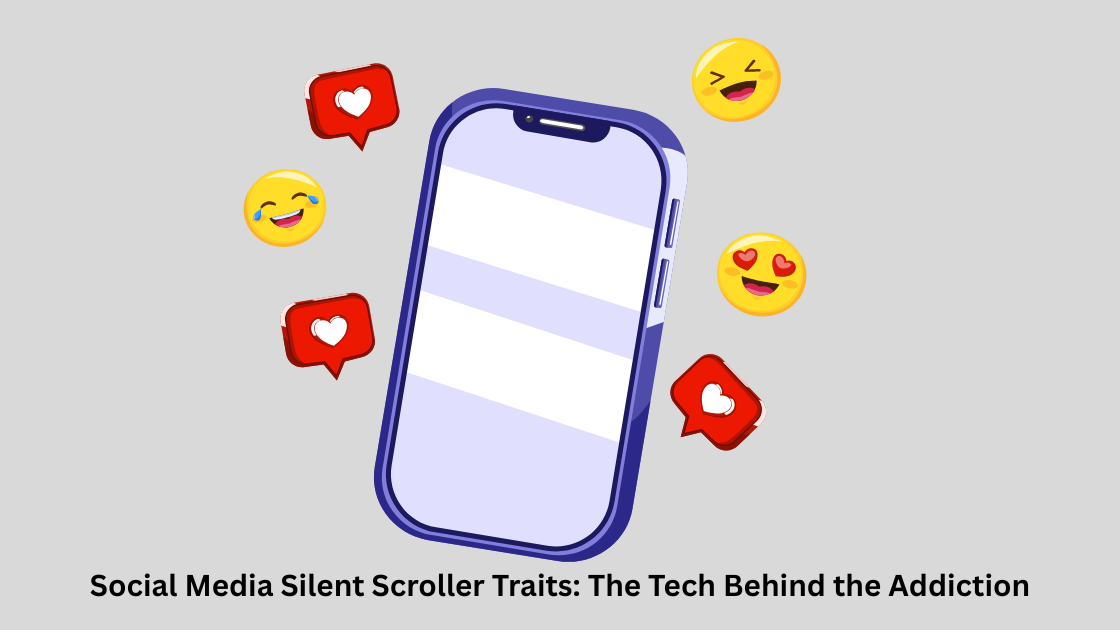Nowadays, some individuals scroll through social media and never even pay attention to it. Such individuals are referred to as silent scrollers, and they read posts, watch videos, and read stories but seldom like, comment, or share anything. It is initially relaxing, but gradually it turns into a lifestyle and is difficult to break. This addiction is caused by smart technology. The social media apps have strong systems that analyze what you like and proceed to display similar content. This is what causes you to scroll further and further. This is how it works, which can help you manage your screen time and use social media.
What Makes Someone a Silent Scroller

A silent scroller is a person who spends much time on social media and scrolls posts, videos, and pictures without replying or commenting. They silently follow the lives of other people but seldom post their own. This habit is usually because one is bored or lonely, or intrigued.
In the course of time, it turns into a routine and is difficult to quit. Silent scrollers are looking to be spared and entertained, saving in this infinite content only to feel emotionally exhausted afterwards. It is good to know why this occurs; it is normally not a matter of being shy, but rather the comfort of the feelings and easy distraction. Being aware of this tendency is the initial step to make social media use under control and get back to real life.
How Tech Fuels Silent Scrolling?
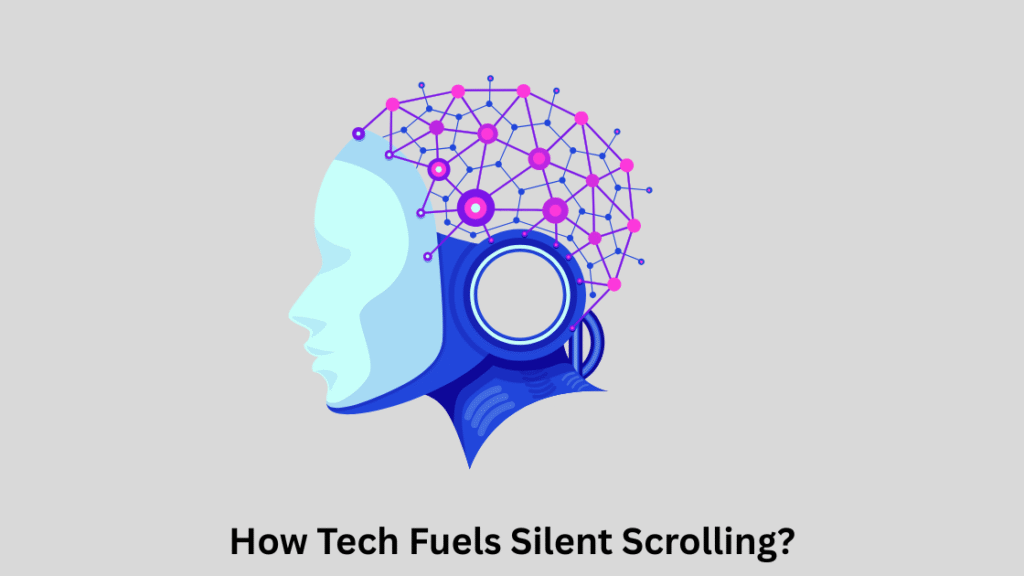
Technology contributes greatly to ensuring people are fixated on scrolling. The nature of social media applications is to capture your focus with endless feeds, notifications, and videos that do not end. You can use algorithms to get to know what you like, and it is harder to leave the app because it will continue to offer you similar posts.
Each comment, like, or video stimulates dopamine, a chemical in the brain that makes you feel good, which compels you to scroll further. The longer you spend online, the more the tech companies make a profit. This is a system that makes casual use a habit. Knowing how technology takes charge of your focus will enable you to control it and be conscious of it.
Characteristics of Social Media Addicts / Silent Scrollers?
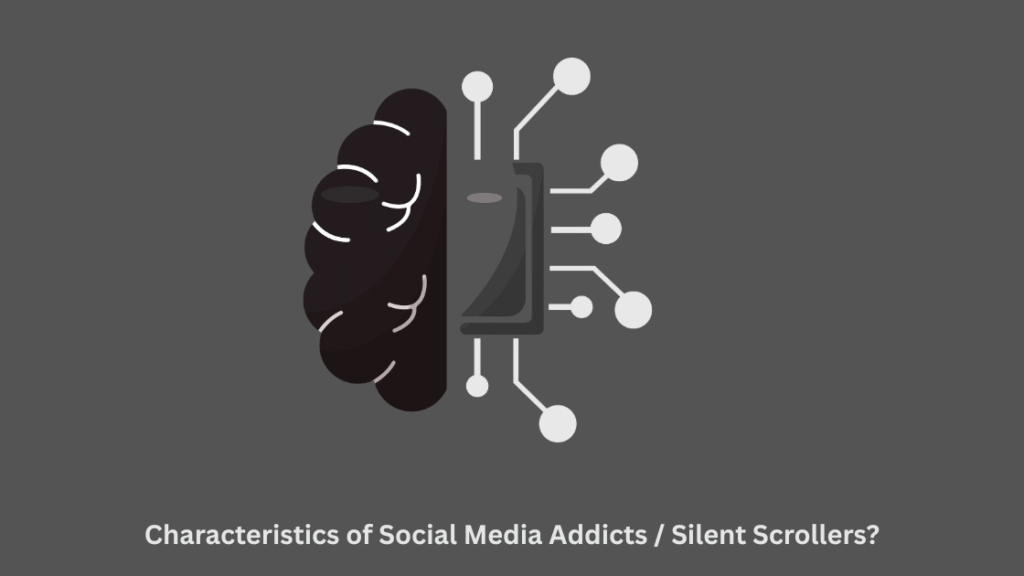
There are certain obvious similarities between silent scrollers and social media addicts. They look at their phones frequently, even without a reason. They write during the night hours without keeping time and experience anxiety when not online. Such individuals tend not to post more but know all that is going on online.
They assess their life to those of other people; they are emotionally fatigued and are even out of touch with reality. They lose concentration and work efficiency, yet they are coming back to calm down. The awareness of these indicators may aid in the modification of habits. Knowing and having minor daily restrictions, any person can begin to end this habit and develop healthier social media relationships.
Creeping Perils of Compulsory Addiction?
Lurking addiction, scrolling, and peeking at the lives of other people might not be dangerous, but it has their dark sides. It may lead to loneliness, self-distrust, and social anxiety. Looking at filtered and flawless posts might make you feel worse about your life. In the long run, you can lose interest and actual social relationships.
The mind is not satisfied and only keeps you busy, causing stress and bad sleep. You also may end up being unhealthily addicted to continuous digital stimulation. It is significant to be aware of these impacts on your mental health. Breaks and increased time offline can enable you to be reconnected with reality and feel more balanced.
Indications that You May Be a Silent Scroller

You read and read and never comment:
You spend considerable time changing posts, reels, or stories, but rarely comment, share, or like. You like watching people rather than talking to them, even when you are emotionally involved with what you see on the internet.
The first thing you do in the morning is to check social media:
Your hand is reaching for your phone even before brushing your teeth or leaving bed. Looking at updates, reels, or feeds is now your new habit, and the whole day is established on a passive and distracted note.
You get to know everything they do and never tell them yours:
You forget how long you have been scrolling:
The browsing can be passed easily into hours. You give yourself an extra five minutes, but those algorithms and never-ending feeds suck you into the vortex, and you do not even realize that you have wasted six hours.
You write even when you are not in the mood or are agitated:
You can always resort to social media whenever you are lonely, bored, or anxious. Your mental coping mechanism is scrolling as this momentarily distracts your feelings, but you feel mentally exhausted afterwards.
You like reading material more than communication:
You are not talking to your friends; you are wasting most of your time online watching videos or reading the comments. You are a consumer of content and never want to engage in discussion, remaining anonymous in social relations.
Your life, you curiously compare to other people:
When you scroll, you are always comparing your appearance, way of life, or success to others on the internet. Although you might not say it, these comparisons gradually influence your self-confidence and cause you to be less content with your life.
You tap feeds over and over again to get new content:
You keep on updating your feed to get something new, even when the majority of posts have been read. This practice is restless and addictive; your brain wants repeated stimulation by new and short bursts of material.
When you are not online, you are anxious:
You are restless or out of touch when your internet is unavailable or when you forget to bring your phone. This nervousness indicates the level of emotional attachment that you have developed to scrolling through Instagram and being on the internet all the time.
You read before retiring to sleep:
You scroll through the posts or watch the video until your eyes hurt, even when you are tired. This scrolling habit at bedtime influences the quality of your sleep life and continues to overstimulate your mind well after you stop scrolling.
The Future of Social Media and Human Attention
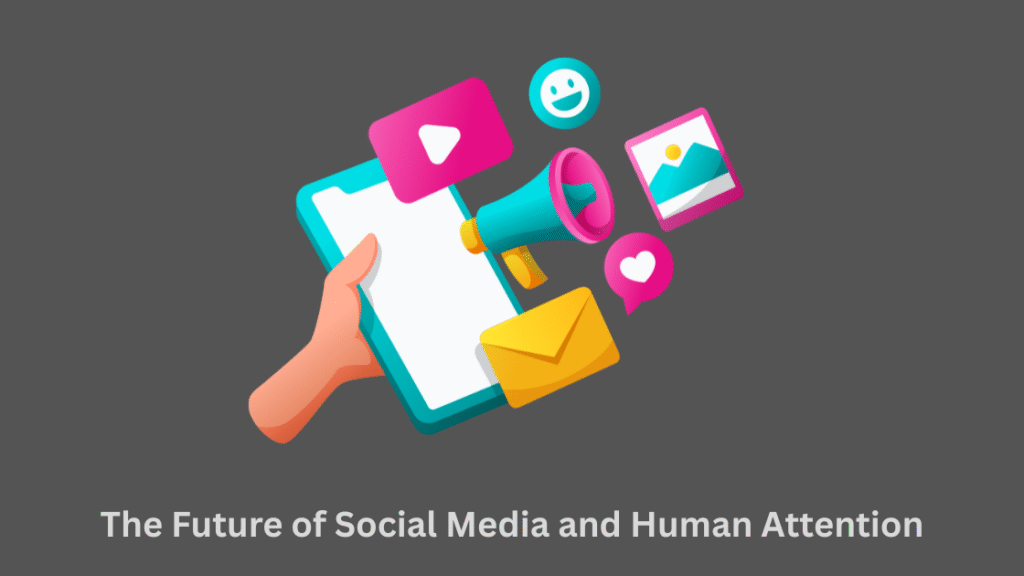
Social media can only get smarter in the future through the introduction of new technologies such as virtual reality. However, people will be less attentive, as platforms want users to scroll. Companies can display personal and emotional posts more frequently so as to ensure that people are interested. Unless individuals pay attention to this, they may find themselves giving their attention to the money that tech possesses.
In order to save focus, individuals should strike a balance between online and real life. A wealthy future is in the ability to be conscious of digital decisions, apply social media purposefully rather than letting it take control. Our focus can be maintained by healthy habits.
How AI Makes Your Feed Personal to Your Maximum Engagement
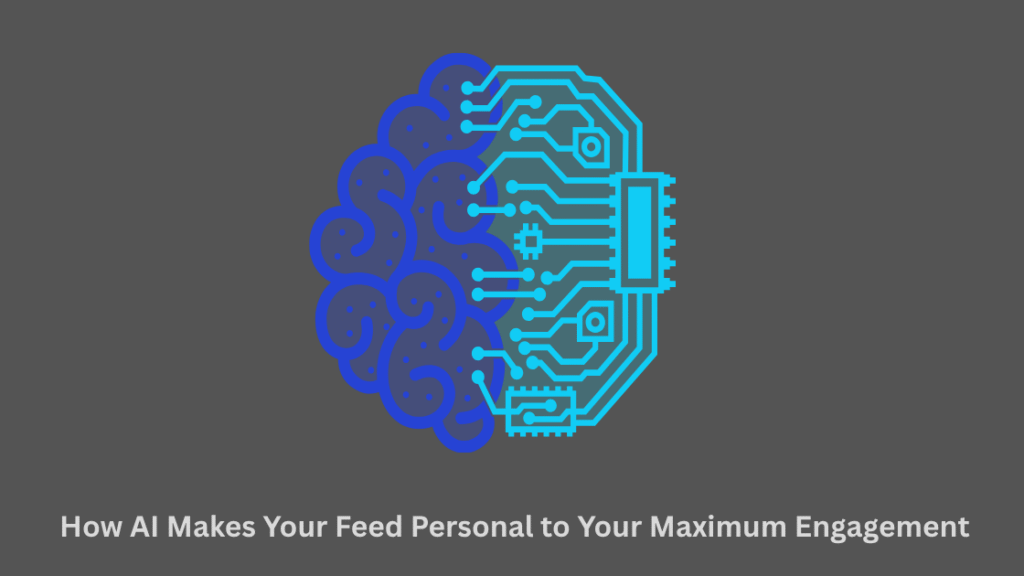
Artificial intelligence determines your online content. It examines what you like, search, and the duration you spend on the posts to infer what you will like next. That is why each scroll seems to be relevant. However, this intelligent system keeps you hooked in even more, leading to scrolling without speaking. The further you scroll, the more data AI receives and the more it can focus on you. It is a cycle that assists the platform and not your mental state. This knowledge means that you are in control. Use good content and have restrictions to prevent digital burnout.
The effect of Silent Scrolling on Sleep and Productivity
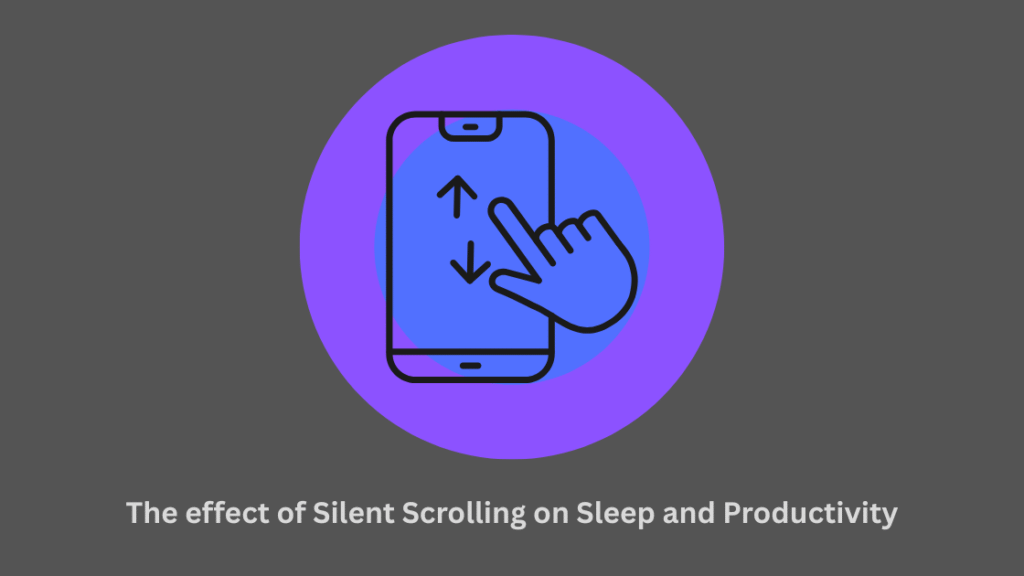
Night-silent scrolling is detrimental to sleep and labour. Light on the screen deceives your brain, and then you can hardly relax and sleep. Most individuals spend the night watching videos or reading posts, thereby reducing the quality of sleep.
You are not getting enough rest, which leaves you exhausted, inattentive, and de-energized on the following day. It also suppresses the desire to work or study. This cycle is damaging to mental health and day-to-day performance in the long run. To cure this, turn off screens when going to bed, limit time, or have digital detox periods to balance or sleep better and be more productive.
Identifying and dealing with the Habit
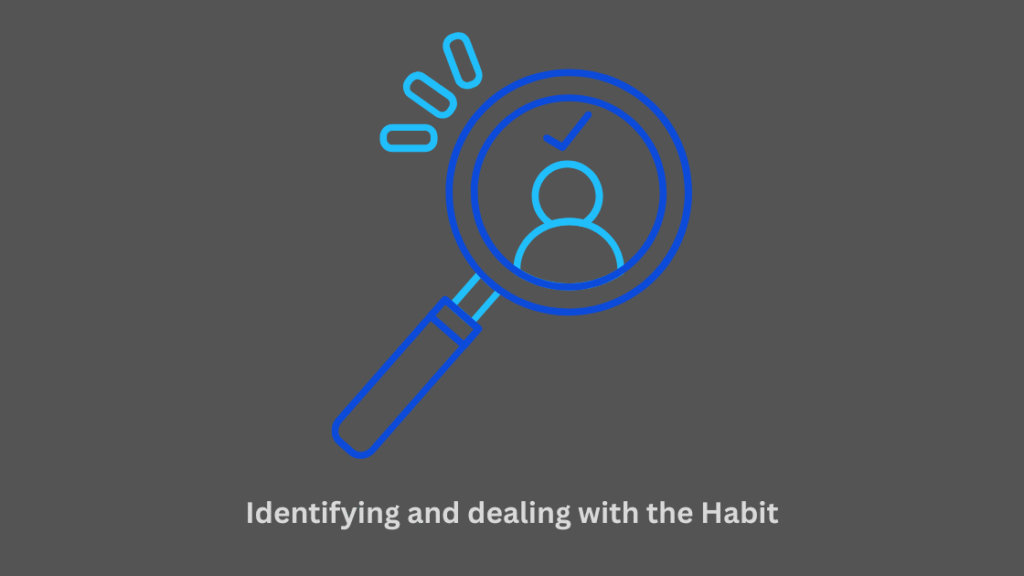
In order to deal with silent scrolling, begin to be conscious of when to scroll, the reason behind it, boredom, stress, or habit. Monitor your screen time and set application limits. Substitute scrolling with hobbies, reading, or taking short walks. Store phones out of sight during meals and during sleep. Bad accounts that drain you are better off unfollowing and following good ones instead. Switch off notifications to reduce check desire. It is a gradual process of change, but you’ll have it under control with time. Smart use brings tranquility, focus, and increased time to real life, and social media is an instrument, not a curse.
Can The Future of Social Media Ethics Be Addicted To?
It is up to firms to choose between being ethical and profit-driven, which will determine the future of social media. Numerous platforms are created to make the user addicted, rather than healthy. However, mental health and digital well-being awareness are on the increase. Ethical design might imply time reminders, healthier algorithms, and understandable data use. Responsible changes may be requested by governments and users. Nevertheless, effective change requires user discipline – the users should opt to put balance over unbroken scrolling. When ethics and awareness collaborate, social media may be good, and it may relate to individuals without regulating their thoughts and emotions.
The effects of Mental Health on Silent Scrolling
The scrolling can be very damaging to the mental well-being without their awareness of the people. The lives of other people might bring about jealousy, sadness, or a lack of confidence when one observes them all the time. It may bring on anxiety and fear of missing out as well. With time, the brain becomes accustomed to content in the moment, and it is difficult to work on something real. Excessive screen time may also result in Isolation and even depression. Emotional well-being can be enhanced by taking a rest, and after encouraging pages, and by scrolling. Social media can be both inspirational and not exhausting when used carefully. Balance and self-awareness in everyday digital activities are the key.
Conclusion
The most common habit is silent scrolling, which gradually influences concentration, emotional state, and relations. It provides immediate relief but conceals long-term damage. Tech and AI are strong, but consciousness is better. Do it to be more aware of how social media takes your attention and breaks the loop. You can use social media without losing control by putting boundaries, aiming at real relationships, and making purposeful use of the platforms. Conscious use, ethical design, and self-discipline will determine the future. Healthy scrolling entails leveraging technology to grow and not to flee – since the real measure of digital wisdom is balance.

